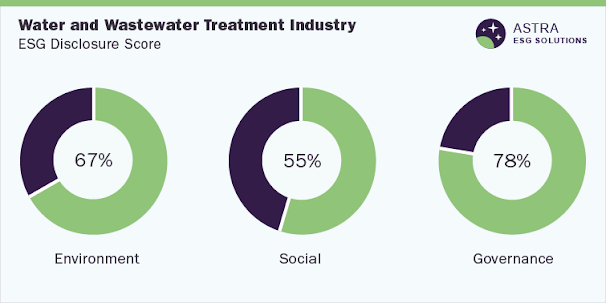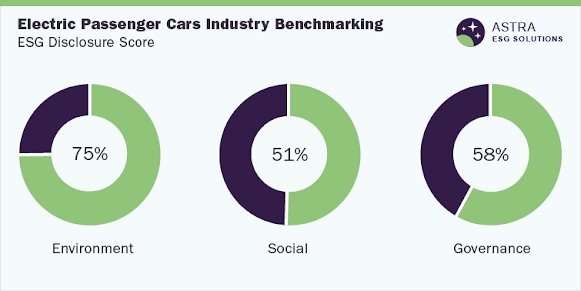A quantum leap in real-time payments (RTPs) has leveraged customers, enterprises and governments to streamline payments and enhance the efficiency of the financial ecosystem. Real-time payments have made financial services attractive among millennials and the Gen Z population. The upsides of RTPs will be pronounced as policymakers, start-ups and other stakeholders emphasize the expansion of modern payments infrastructure. When compared with legacy alternatives that normally take days to reach the target, RTP has brought a tectonic shift to provide faster and more robust means of payment. It has unfolded social and economic facets that can influence stakeholders across verticals.
Industry leaders have jumped on the bandwagon to inject funds into environmental, social and governance (ESG) frameworks and policies. The year 2023 and beyond could witness real-time payments continuing disruptions. Notably, it could offset economic inefficiency with money locked up in financial systems. Cash-dominated regions are expected to invest in the advanced payment structure to help consumers gain access to financial services and help governments collect taxes and distribute benefits accurately and swiftly.
Fintechs and banks turned adversities into opportunities following the prevalence of the COVID-19 pandemic. The outbreak brought a paradigm shift in the payment landscape, bolstering the digital payment ecosystem. Companies scampered to keep up with the payment demands amidst a surge in cyber threats. Early adopters anticipate witnessing better liquidity management, enhanced communication with counterparties and seamless access to transaction data.
Environmental Perspective
Sustainable payment structure has emerged as a pressing segment amidst the soaring cost of cash management, including environmental, social and governance cost of printing notes. Payments initiated and settled instantaneously could prove to be a game-changer in the cost-effectiveness of cash management and be available 24 hours a day, 7 days a week & 365 days a year. Organizations have exhibited strong demand to boost spending on payment infrastructure. According to an FIS survey released in 2021, around 27% of organizations expect to implement RTP in the next three to five years, while 14% have already embedded the payment infrastructure.
At a time when customers of U.S. corporations are writing approximately 2.3 billion checks (equivalent to 455,000 trees) annually to pay their bills, digital payment could be a silver lining. With policymakers and global regulators pushing for a framework for reporting of climate risks, a transition from paper to digital could be a notable step toward sustainability. In April 2022, one of the largest check processors in the U.S. BNY Mellon announced a reduction in paper checks. Clients have reportedly minimized the number of checks they send to BNY Mellon for processing by 8.5% since 2019.
In May 2021, the check processing company announced the rollout of a real-time electronic bill (e-bill) and payment solution, it claims to be the first bank cashing in the RTP network to offer instant digital consumer bill pay service. Reflecting these trends, advanced economies, such as the U.S. have set an overarching goal of minimizing greenhouse gas emissions by 50%-52% by 2030. Advancements in payment systems are expected to complement these priorities.
Social Perspective
With payments becoming cashless, the road to a digital economy has become pronounced globally. Agility and being proactive on ESG have become compelling as a solid ESG proposition can be the precursor to the company’s long-term success. A buoyant ESG framework can propel employee motivation, reduce employee turnover and enhance social credibility. For instance, Mastercard alluded to the launch of four “work from elsewhere” weeks annually in its 2021 Corporate Sustainability and Diversity, Equity, and Inclusion (DEI) report.
The payment processing company joined forces with Neurodiversity in the Workplace (NITW) to roll out a Neurodiversity Hiring Pilot for the recruitment of neurodivergent candidates for full-time job opportunities. A sharpened focus on social performance has created an avenue of growth. The U.S.-based company has also set an “In Solidarity” action plan to overcome racism and is on course to bring 50 million micro and small businesses and 1 billion people into the digital ecosystem by 2025.
Businesses have also realized the need for skills renewal to leverage lucrative investment opportunities. The FIS survey asserts that around 44 percent of organizations will emphasize skills to bolster innovation. Fintech companies are investing in diversity and economic strength, especially among underbanked populations. To illustrate, in 2021, PayPal earmarked USD 535 million for racial equity and social justice and allocated USD 108 million commitment to underpin the economic empowerment of women and girls. The online payment company also furthered its social profile by enabling early wage access, financial education sessions and financial wellness grants. Companies are expected to harness the power of the ESG ecosystem to tap into the global landscape.
Is your business one of participants to the Global Real-time Payments Industry? Contact us for focused consultation around ESG Investing, and help you build sustainable business practices.
Governance Perspective
Governance has become invaluable for banks to act as gatekeepers, comply with the law, make effective decisions and meet the needs of external stakeholders. Companies are gearing up to adhere to environmental laws amidst soaring sustainability concerns. High standards set by governance structure will add a fillip to the brands’ reputation and corporate culture. Sound internal governance and disclosures pertaining to the role of the Board and management in climate-related risk management and technology resiliency could reshape the industry dynamics.
Prevalence of practices, such as a diversified board of directors, ethical business practices and transparency has propelled the prominence of the ESG framework. For instance, BNY Mellon boasts of 91% board independence and 36.4% women directors (after the election of directors in 2022). Throughout the year, the senior management rendered reports and updates of the company’s environmental and sustainability programs to the Corporate Governance, Nominating and Social Responsibility (CGNSR) Committee.
Directors, venture capitalists and other stakeholders have prioritized governance, long-term business strategy and education on climate-related issues. Well-established brands have underscored monitoring board composition, risk management and diverse board structure. Akin to BNY Mellon, independent directors at Visa were pegged at 91% (as of April 2022). Besides, the payment giant has fostered its ethics & compliance program amidst a shift to a virtual business environment. Notably, Ethisphere Institute listed Visa among the world’s most ethical companies in early 2022. Embedment of ethics, compliance and transparency into management processes could further promote and bolster corporate governance.
Forward-looking companies face an uphill task that provides both challenges and opportunities to empower people, invest in a diversity workforce and protect customers from cyber threats. The projected CAGR of the real-time payments market at 34.9% through 2030 indicates a rising trend of electronic payment infrastructure.
About Astra – ESG Solutions By Grand View Research
Astra is the Environmental, Social, and Governance (ESG) arm of Grand View Research Inc. - a global market research publishing & management consulting firm.
Astra offers comprehensive ESG thematic assessment & scores across diverse impact & socially responsible investment topics, including both public and private companies along with intuitive dashboards. Our ESG solutions are powered by robust fundamental & alternative information. Astra specializes in consulting services that equip corporates and the investment community with the in-depth ESG research and actionable insight they need to support their bottom lines and their values. We have supported our clients across diverse ESG consulting projects & advisory services, including climate strategies & assessment, ESG benchmarking, stakeholder engagement programs, active ownership, developing ESG investment strategies, ESG data services, build corporate sustainability reports. Astra team includes a pool of industry experts and ESG enthusiasts who possess extensive end-end ESG research and consulting experience at a global level.
For more ESG Thematic reports, please visit Astra ESG Solutions, powered by Grand View Research
%20Terminal%20Industry%20ESG.png)



